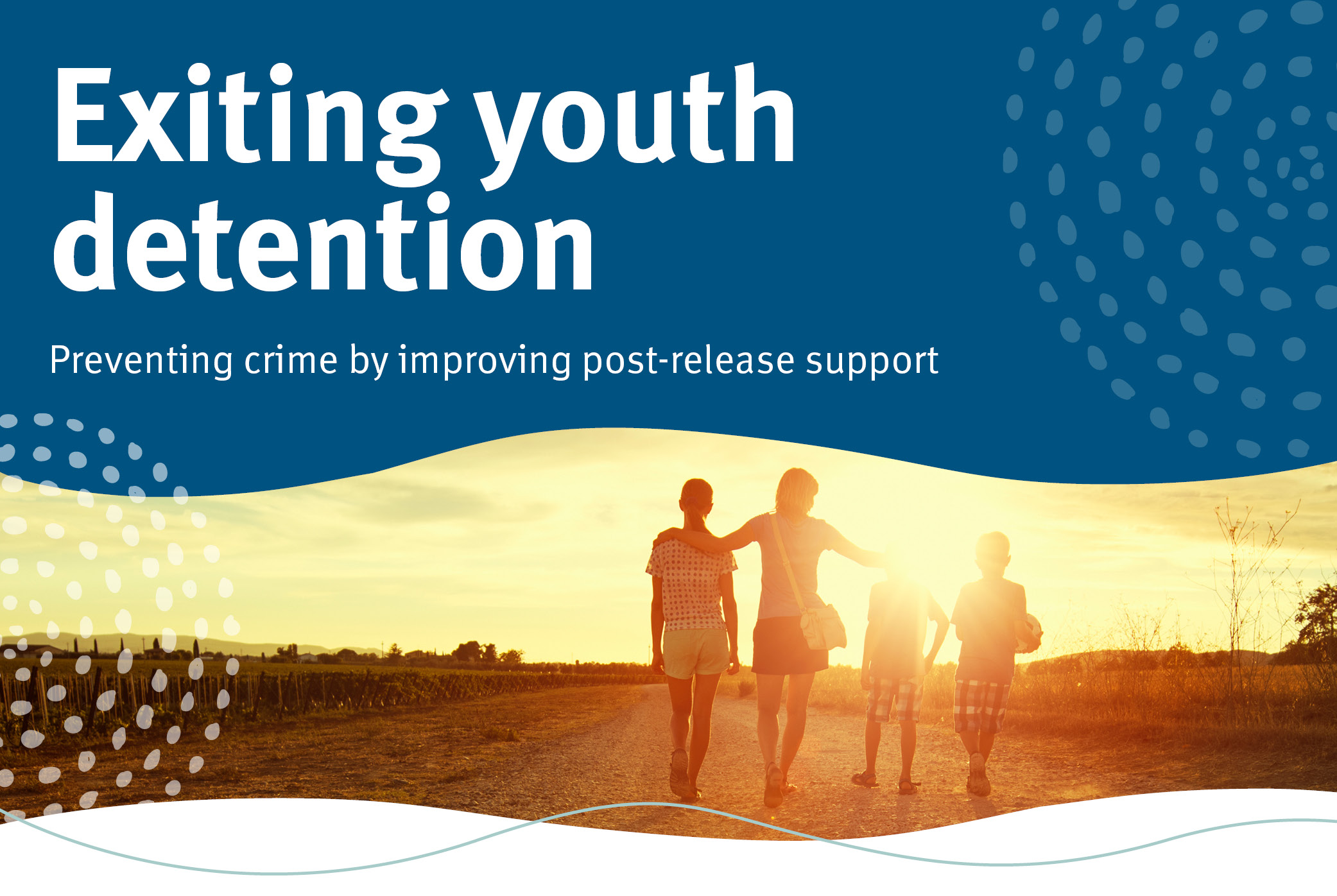Young people reveal solutions to reduce reoffending
21 June 2024The Queensland Family and Child Commission (QFCC) has completed a report that captures the views of young Queenslanders about the influences that increase their likelihood of reoffending after being released from detention.
Young Queenslanders described their transition plans and rehabilitation programs as being ineffective in addressing the root causes of offending and spoke about the negative impact of the community’s views of them.
The report includes two recommendations to improve the support provided to young people on their release from detention that will better support them to avoid reoffending.
A report from the QFCC exploring reoffending among young people in Queensland says transition plans and rehabilitation programs are ineffective in addressing root causes of offending and that community views of young people are discouraging them from contributing positively to their communities.
The percentage of young people who reoffended within 12 months of being released from Queensland youth detention centres was between 84 and 96 per cent in 2023, with the report suggesting existing approaches to rehabilitation and reintegration are ineffective or assumptions about the rehabilitative prospects of detention are unjustified.
The report was informed by the experiences of 66 young people who have been in detention in Queensland, families of young people who have offended, and 44 frontline workers from across Queensland.
Young people spoke about the causes that drove them to offend—poverty, housing instability, family breakdown and exposure to domestic and family violence, and drug and alcohol use and dependence—and how the support they received both in detention and on release was ineffective at addressing these factors.
Transition plans were described as being ineffective in helping young people reintegrate into their communities, with young people saying they did not receive enough support to build strong and lasting relationships with people who could aid their rehabilitation.
Others said their transition plans were not tailored to their needs, locations and circumstances; took too long for actions to be implemented; and did not offer intensive support to address their needs.
Young people said they feel their communities view them negatively, making them feel disconnected, unvalued and unwanted, which they said discourages them to participate positively within their communities.
The young people clearly articulated that their rehabilitative prospects were better when they could build a strong, trusting and enduring relationship with a support worker or a member of their family or community, and that this was more effective than participation in a short-term, generic or universal program.
The report makes two recommendations to strengthen post-detention transition programs for a dedicated 12-month period, with programs forming part of a broader developmental approach to crime prevention that invests in supports and services to address the root causes of offending.
Exiting youth detention: Preventing crime by improving post-release support is available to view on the QFCC website: https://www.qfcc.qld.gov.au/sector/monitoring-and-reviewing-systems/young-people-in-youth-justice/exiting-youth-detention
Quotes attributed to QFCC Principal Commissioner Luke Twyford:
“Youth justice is a topic of strong community debate in Queensland, yet we rarely hear from the young people themselves about what they need from the community and the youth justice system to help them change their behaviour.
“For every person who offends—of any age—the purpose of our justice system must be to change behaviour and hold that person accountable for their actions.
“Our youth justice system does this successfully for the vast majority of young people who offend, but for the small group who go on to reoffend, it’s clear the system isn’t meeting its intended purpose.
“Our report sought to understand why the system is not effective in rehabilitating those who reoffend nor in supporting them to change their behaviour.
“The main concern raised was the inadequate support and services invested in addressing the root causes of young people’s offending, meaning we are essentially releasing young people from detention back to the circumstances and environments that drove them to their offending in the first place.
“I was immensely saddened to hear that young people who have experienced detention feel rejected by people in their communities, which—in their words—is a disincentive to contribute positively and change their behaviour for the better.
“This clearly tells us that continuing to demonise and reject young people who have offended—often because of circumstances outside of their control—will do nothing to reduce offending in our communities and will likely have the reverse effect.
“While our report makes recommendations to government about the responses needed to better rehabilitate young people, it also makes it clear that we in the community have a clear role in supporting young people to feel valued and to help them change their behaviour.”
ENDS
For media information contact:
Kirstine O’Donnell | Queensland Family and Child Commission
Phone: 0404 971 164
Email: media@qfcc.qld.gov.au

